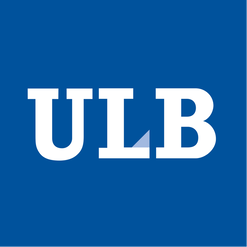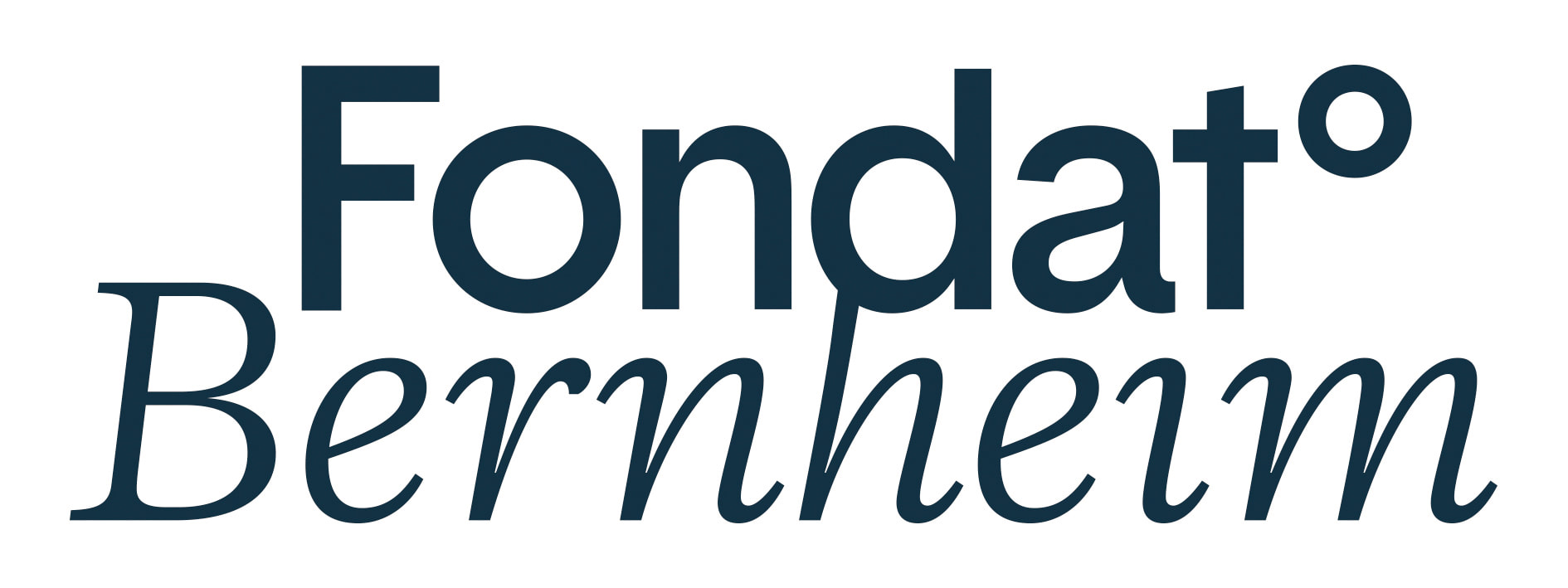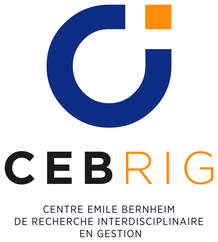MISSION STATEMENT
CEBRIG (Centre Emile Bernheim de Recherche Interdisciplinaire en Gestion) is one of the oldest research centres at SBS-EM. It was founded in 1951 as Centre Emile Bernheim d’Etude des Affaires, thanks to the impetus of Emile Bernheim, an industrialist with a broad and generous vision of the role of business in society.
Its first bylaws stated that its main aim was “to tighten the links existing between the University on the one hand and industrial, commercial, banking and other companies and their professional groups on the other hand, with the double objective to bring to the business community the support of scientific research.” |
Some figures
|
Emile Bernheim later entrenched his support to CEBRIG and specified his vision in his will. The will assigned to CEBRIG a visionary mission: “To seek the conditions for a lasting social peace, supported by an equitable distribution of profits and by the harmonious cooperation of the economic forces involved.”
It featured a list of questions that were to be addressed by CEBRIG: “the reform of firms’ structures; consultation within companies; the security of workers’ livelihoods; the greater solidarity to be established between the various sectors of the economy; and all other topics that business life can spark now and in the future.” More generally Emile Bernheim’s will stressed the importance of working beyond disciplinary boundaries, undertaking research aiming at better understanding conflicts in order to promote peace, and encouraging individual vocations, especially for the youth.
To this day, CEBRIG has aimed to fulfil the mission assigned to it by Emile Bernheim while respecting his vision. CEBRIG performs fundamental and applied research in all the fields of management science and encourages multidisciplinary research. Multidisciplinary research is key at CEBRIG with members having degrees in fields as diverse as management, business, art, economics, history, philosophy, psychology, or sociology.
We believe that free inquiry, academic freedom, and research exchange are the best way to generate insightful research on the topics defined in Emile Bernheim’s will, at the interface of business, economics, and the social sciences in general.
We contribute to the Solvay Brussels School of Economics and Management in several ways. First, as a research centre, we conduct research and are therefore in line with the mission of the university, and hence SBS-EM’s. Our members are engaged in research and as a result increase knowledge in their respective fields, blending all types of methods, ranging from qualitative to quantitative and
experimental. Their results are published as articles in scientific journals, books, reports or cases studies.
The centre maximizes the publications’ visibility by disseminating a working paper series and a post-print series.
Second, we contribute to the visibility of the school in the general public. We organize regular and one-off events to disseminate the results of the research performed by our members, with a focus on topical societal and policy issues. We give interviews in the press and the social media to maintain an interface between academic research and society as a whole.
Third, and this is a consequence of being part of a university following the Humboldtian model, our research is directly integrated in the education our members provide to students at all levels of education (bachelor, master, PhD, executive education, and in-company training).
Our interaction with society is the first dimension we want to be known for. We want to be a research centre recognized for performing relevant, innovative, creative, thought-provoking and original research and making it accessible to a wider audience. The second dimension is our interaction with business, broadly defined, and society. The two dimensions are in line with Emile Bernheim’s vision, by “bring[ing] to the business community the support of scientific research” and studying the means to bring a “harmonious cooperation of the economic forces.”
It featured a list of questions that were to be addressed by CEBRIG: “the reform of firms’ structures; consultation within companies; the security of workers’ livelihoods; the greater solidarity to be established between the various sectors of the economy; and all other topics that business life can spark now and in the future.” More generally Emile Bernheim’s will stressed the importance of working beyond disciplinary boundaries, undertaking research aiming at better understanding conflicts in order to promote peace, and encouraging individual vocations, especially for the youth.
To this day, CEBRIG has aimed to fulfil the mission assigned to it by Emile Bernheim while respecting his vision. CEBRIG performs fundamental and applied research in all the fields of management science and encourages multidisciplinary research. Multidisciplinary research is key at CEBRIG with members having degrees in fields as diverse as management, business, art, economics, history, philosophy, psychology, or sociology.
We believe that free inquiry, academic freedom, and research exchange are the best way to generate insightful research on the topics defined in Emile Bernheim’s will, at the interface of business, economics, and the social sciences in general.
We contribute to the Solvay Brussels School of Economics and Management in several ways. First, as a research centre, we conduct research and are therefore in line with the mission of the university, and hence SBS-EM’s. Our members are engaged in research and as a result increase knowledge in their respective fields, blending all types of methods, ranging from qualitative to quantitative and
experimental. Their results are published as articles in scientific journals, books, reports or cases studies.
The centre maximizes the publications’ visibility by disseminating a working paper series and a post-print series.
Second, we contribute to the visibility of the school in the general public. We organize regular and one-off events to disseminate the results of the research performed by our members, with a focus on topical societal and policy issues. We give interviews in the press and the social media to maintain an interface between academic research and society as a whole.
Third, and this is a consequence of being part of a university following the Humboldtian model, our research is directly integrated in the education our members provide to students at all levels of education (bachelor, master, PhD, executive education, and in-company training).
Our interaction with society is the first dimension we want to be known for. We want to be a research centre recognized for performing relevant, innovative, creative, thought-provoking and original research and making it accessible to a wider audience. The second dimension is our interaction with business, broadly defined, and society. The two dimensions are in line with Emile Bernheim’s vision, by “bring[ing] to the business community the support of scientific research” and studying the means to bring a “harmonious cooperation of the economic forces.”
POSITIONING
The raison d’être of CEBRIG is to provide an environment as auspicious as possible to a free and independent research, because we view research freedom as the best way to achieve the goals that have been bestowed on us.
This encompasses four key dimensions:
As a prerequisite to those dimensions, we view maintaining respectful and supportive relationships between our members an essential aspect of CEBRIG. We draw a strict line between emulation on the one hand and competition or rivalry on the other.
This encompasses four key dimensions:
- We want to provide the human resources to allow researchers to focus as much as possible on their research. This means that we aim to provide adequate administrative support.
- We want to help researchers find the financial means to perform their research. Providing administrative support goes in that direction. We want to go further by sharing knowledge, know-how, and opportunities, encouraging joint projects and applications.
- We want to encourage interaction between our members. In particular, we want to encourage interactions between researchers involved in various disciplines.
- We want our members to maintain international outlooks and networks. We invite foreign researchers at various stages of their careers, encourage researchers to participate in international projects, and thrive to attract international doctoral students.
As a prerequisite to those dimensions, we view maintaining respectful and supportive relationships between our members an essential aspect of CEBRIG. We draw a strict line between emulation on the one hand and competition or rivalry on the other.
Our key performance indicators reflect our objectives in terms of contribution to science and to dissemination of knowledge.
The following list may be viewed as our key indicators:
The following list may be viewed as our key indicators:
- As a research centre, the number of scientific publications represents an important indicator. Quality is highly debated, CEBRIG follows the SBS-EM journal list in their assessment.
- Scientific articles are not necessarily the most suitable format for the research conducted by our members. Books are a valuable means to accumulate and disseminate knowledge. The number of books published by our members is therefore another indicator of performance.
- Because training new researchers is a way to contribute to future research, the number of defended PhDs and the number of completed doctoral trainings are relevant indicators.
- Organizing, or presenting at, scientific events, workshops and conferences represent another key performance indicator.
- As part of our mission to disseminate research, we consider that the number of events targeting a wider audience is a useful indicator.
- Likewise, we aim to increase our visibility on the media and social networks. We therefore consider that the number of press articles and interviews as an indicator of our performance.
- We consider that the basic service that a research centre can provide its members is to organize research seminars. The number of research seminars organized during a given year is therefore also an indicator of performance.
- Ultimately, to perform our mission better and increase the scope for collaborations, we aim to increase the size of the centre. The number of its members is an indicator, although our capacity to grow will depend on the support that we receive from the faculty.
CONCRETE OBJECTIVE GOALS
Our concrete objectives are therefore the following:
- Maintain an environment propitious to research and encourage interactions between the members of the research centre, paying particular attention to the number of seminars organized.
- Maintain or increase the level of publication.
- Maintain or develop further an international outlook and foster the international network of the centre and of its members.
- Increase interactions with a broader audience and therefore increase our presence on the social media.
The CEBRIG is subsidised by the




